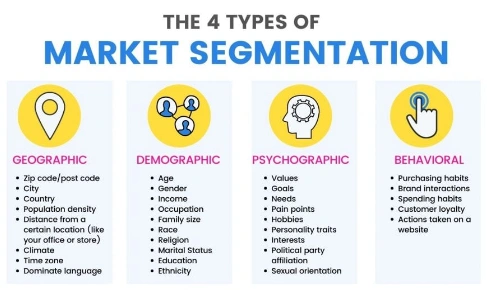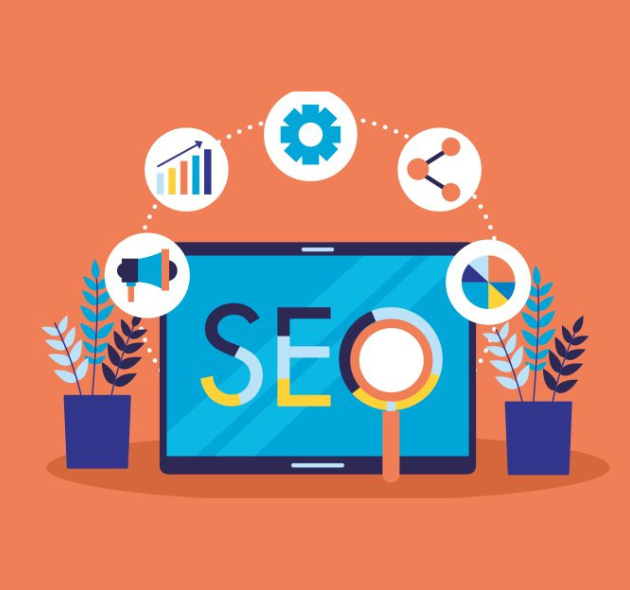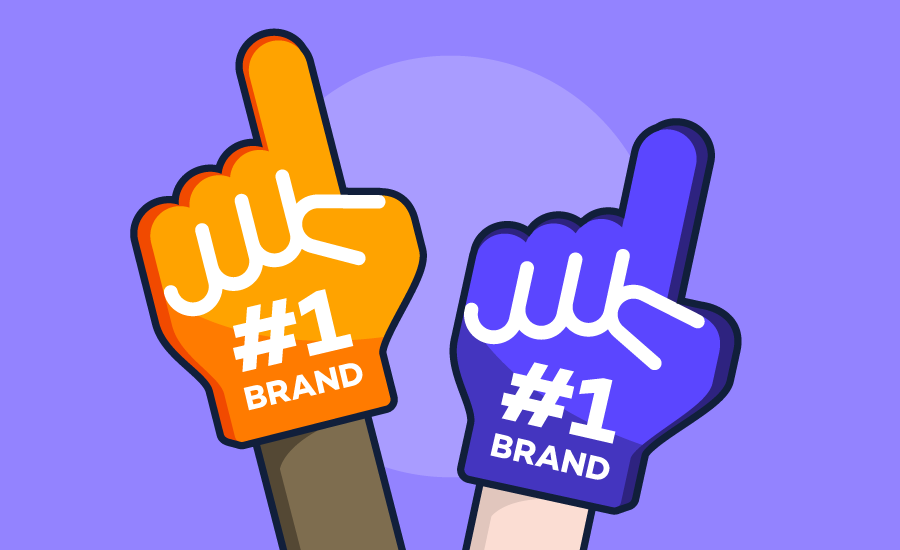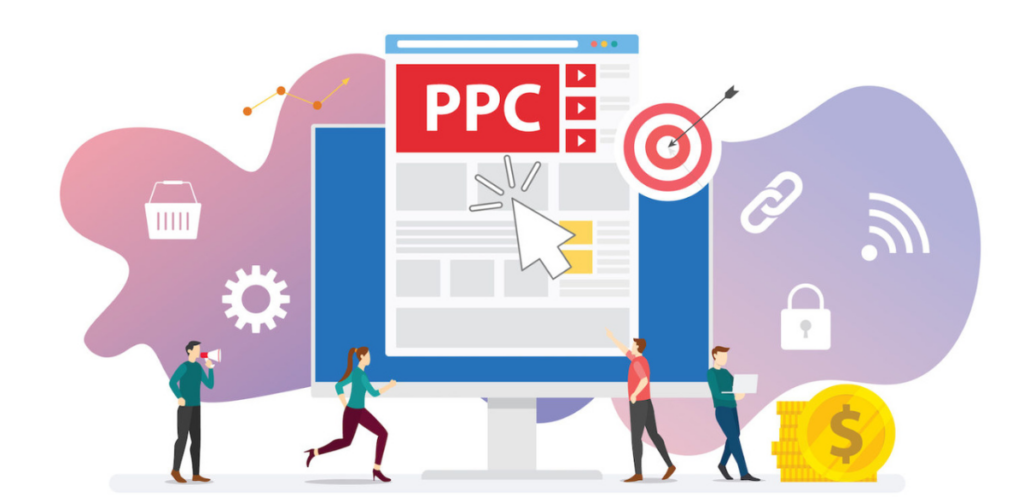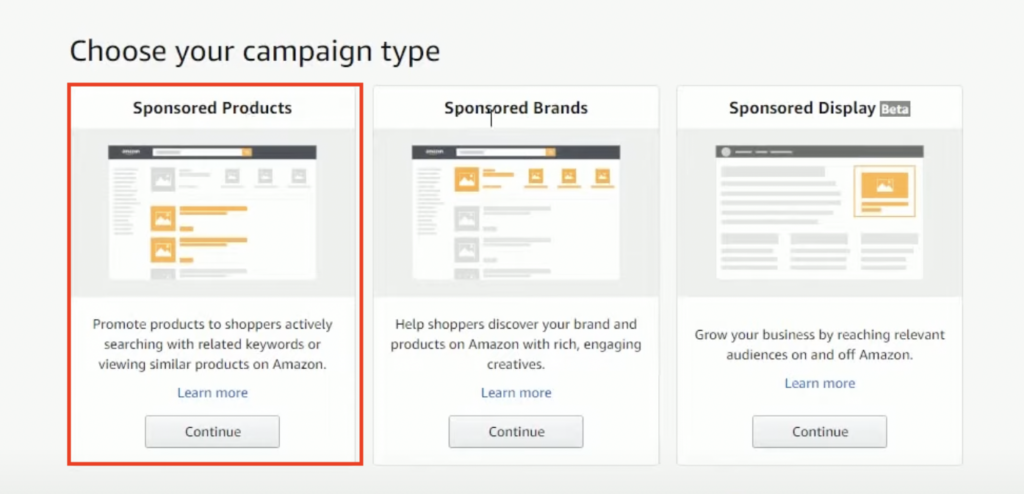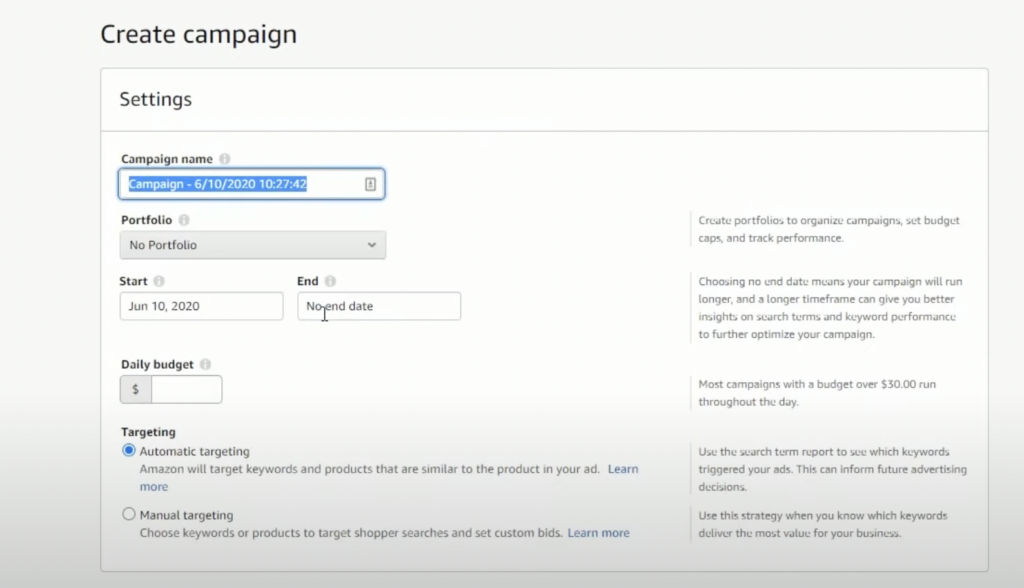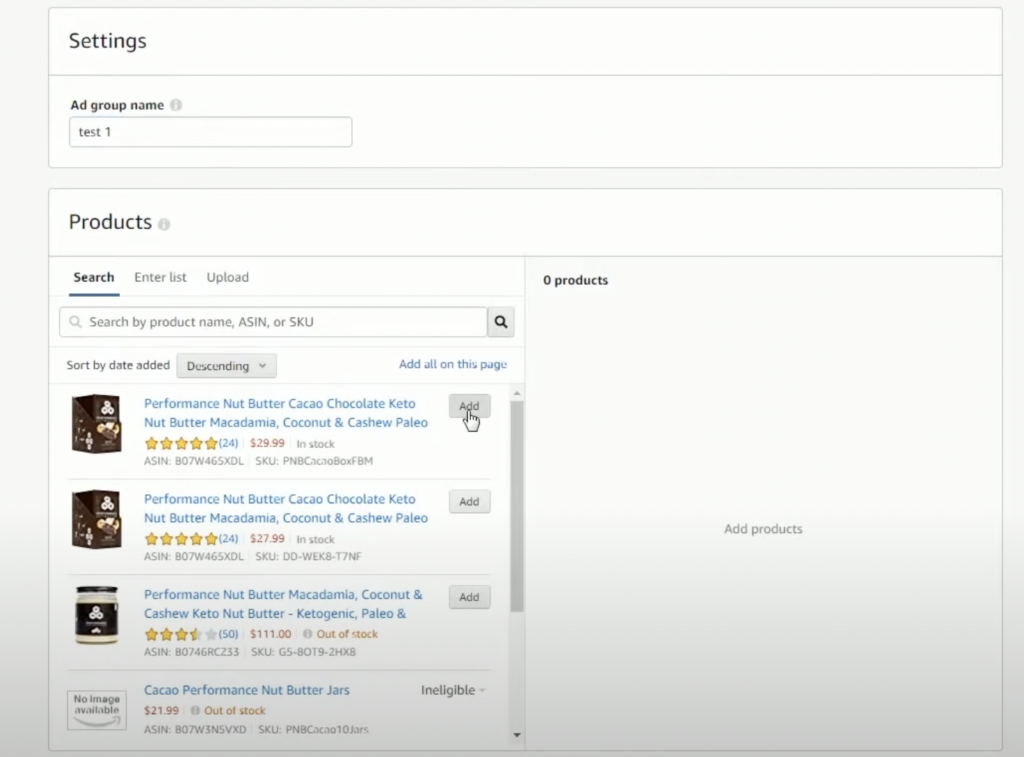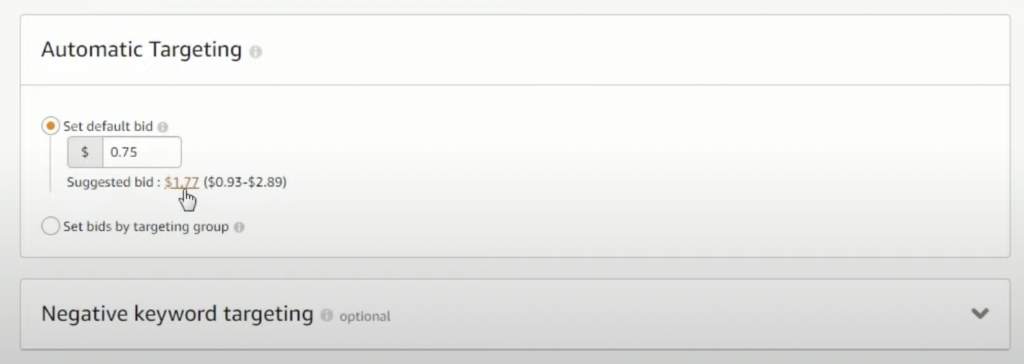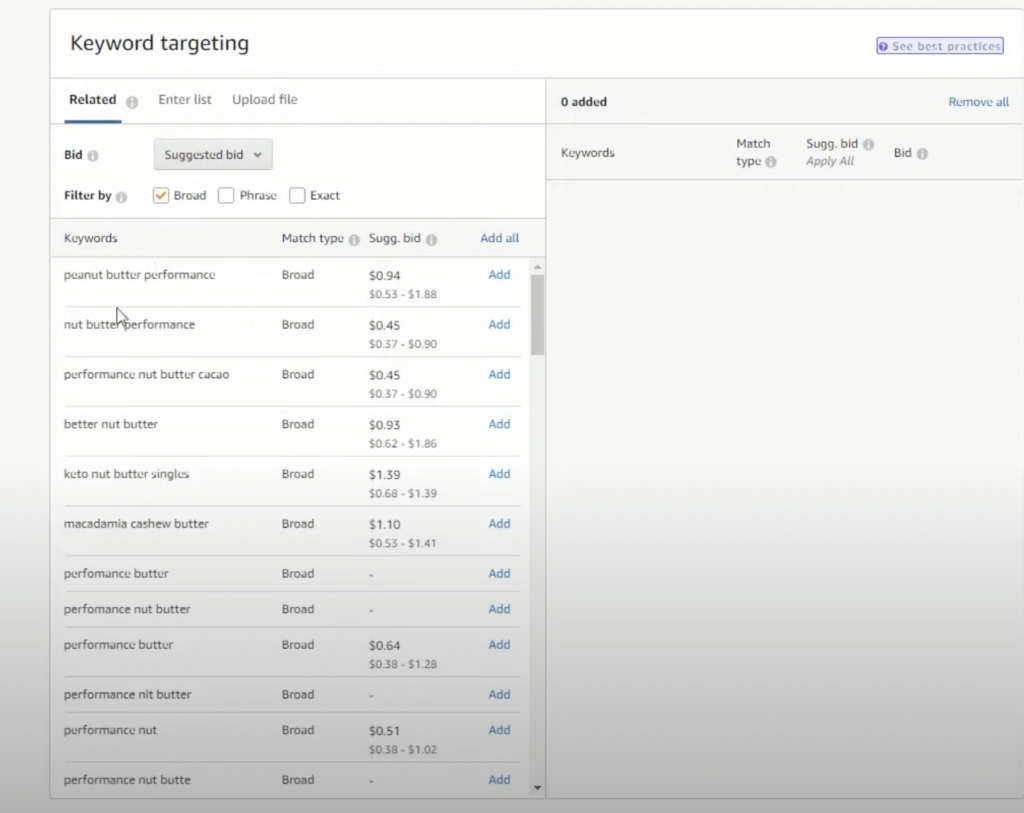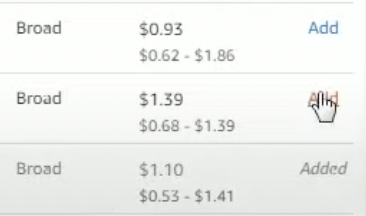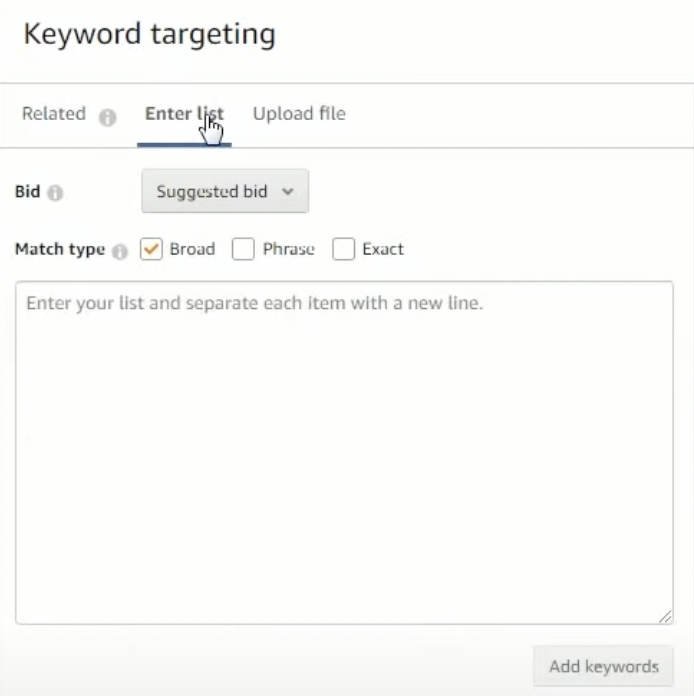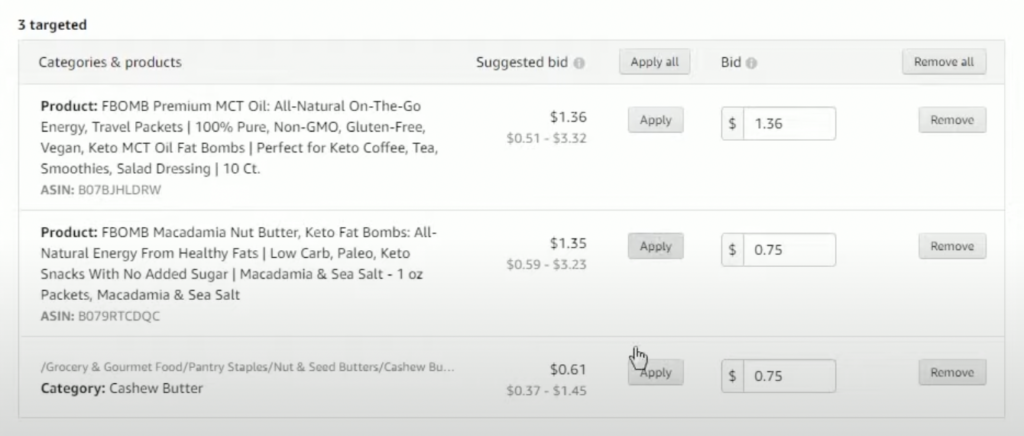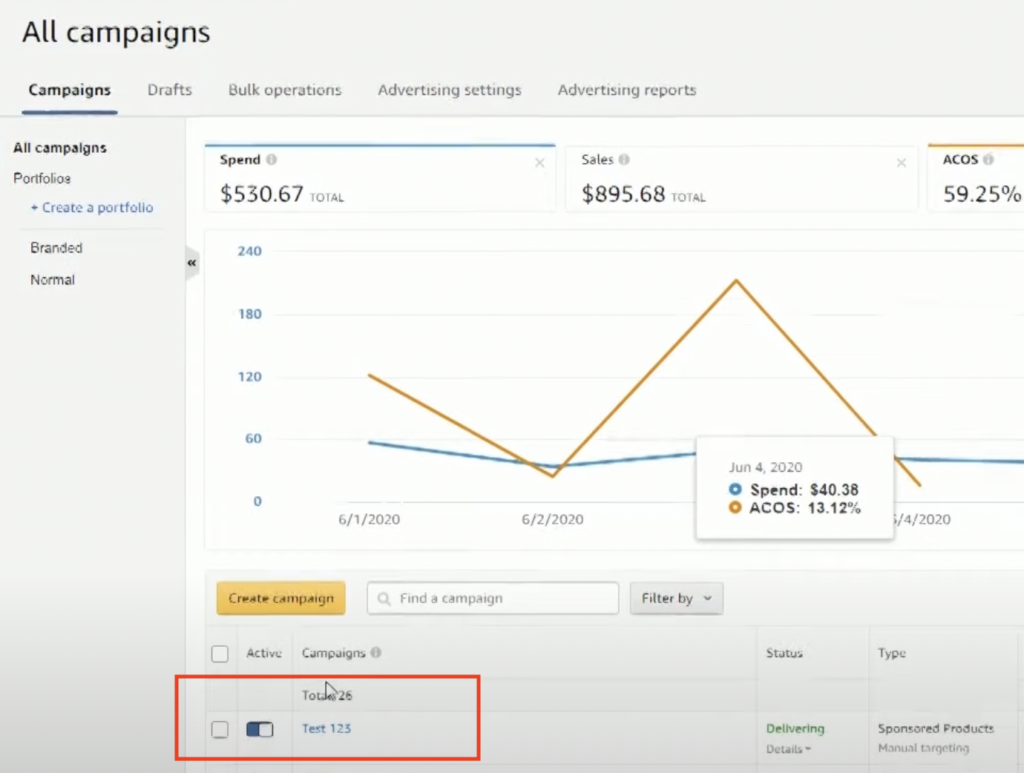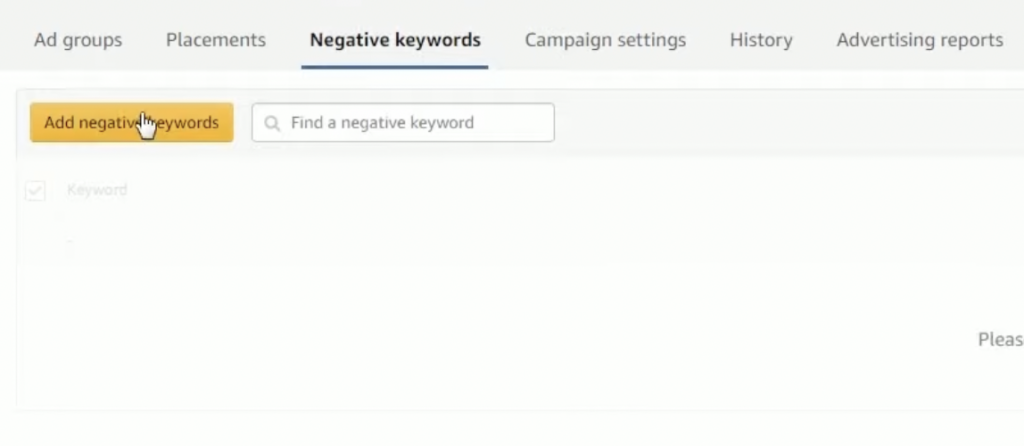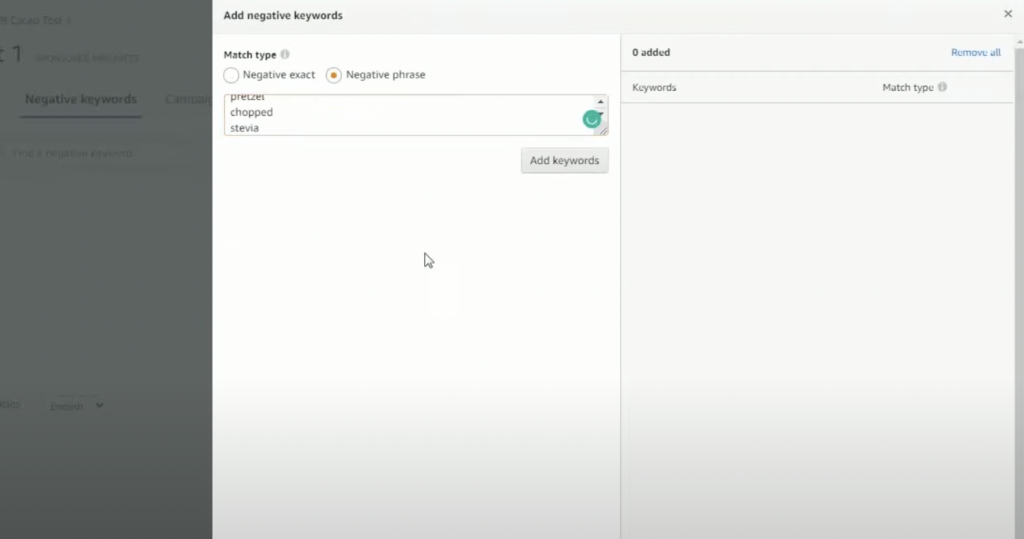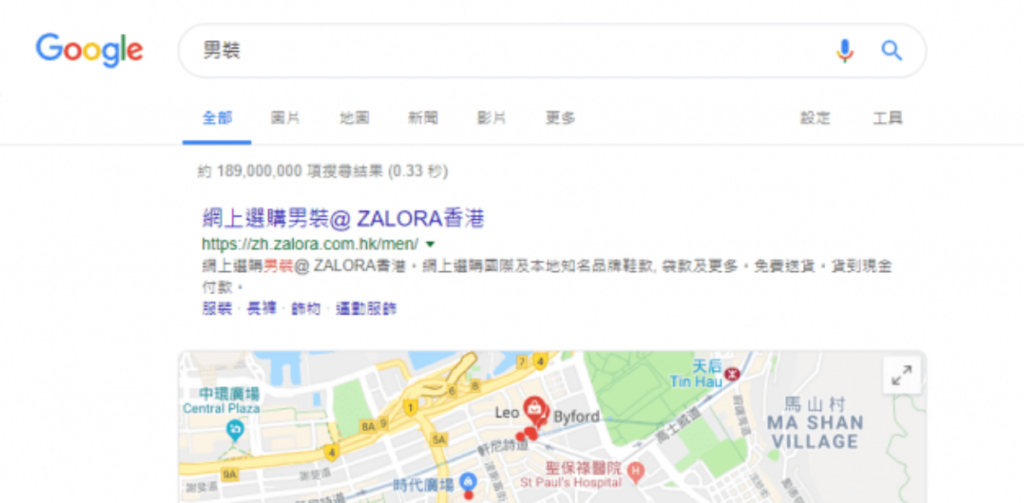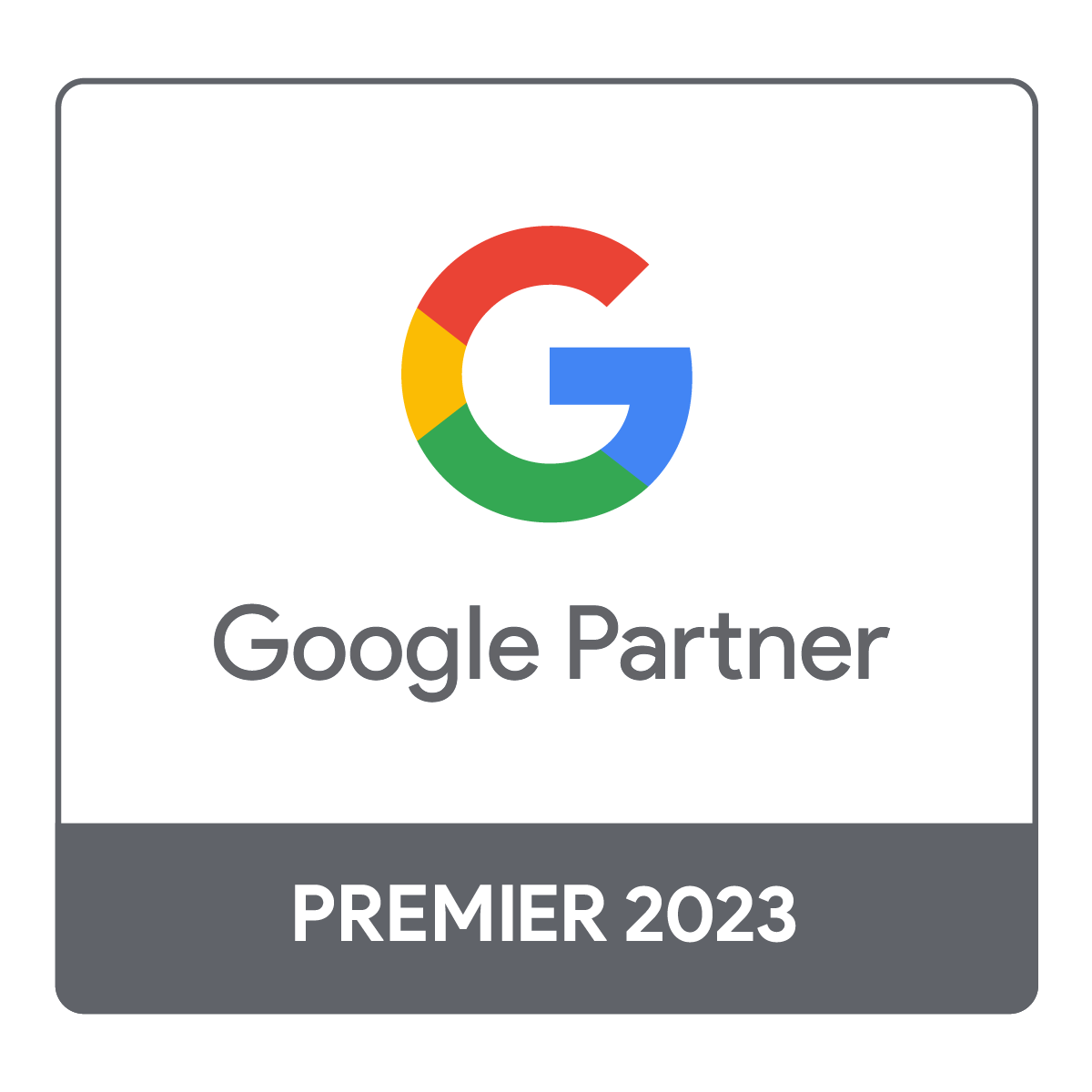Search Engine Marketing (SEM) is a digital strategy that helps businesses appear at the top of search engine results through paid advertising—which is why it’s often referred to as pay-per-click (PPC) advertising.
Unlike organic search engine optimisation (SEO), which takes time to build traffic, SEM allows businesses to instantly target ads to people actively searching for related products or services.
This makes search engine marketing one of the most effective ways to drive traffic and attract customers who are ready to buy.
Let’s read on to discover how this powerful strategy works and how you can use it to grow your own business.
Table of contents
What is Search Engine Marketing?
Search engine marketing (SEM) is a type of digital marketing that helps businesses increase their visibility on search engine results pages (SERPs) through paid advertisements. The process involves bidding on specific keywords that potential customers are likely to search for when looking for a product or service. When users enter these keywords, paid ads appear at the top of search results, making them highly visible.
What Are The Benefits of Search Engine Marketing?
1. Reach the right audience: Unlike traditional advertising, SEM targets people who are actively searching for products or services, making it more likely that they’ll take action. This precision ensures businesses aren’t wasting money on ads that reach the wrong audience.
2. Save on cost: SEM uses a pay-per-click (PPC) model, so you only pay when someone actually clicks your ad and visits your website. That makes it a cost-efficient strategy, ensuring your marketing spend goes toward real engagement—not just impressions.
3. Get instant visibility: One of the biggest advantages of SEM is speed. While SEO can take months to gain traction, SEM can get your ad to the top of search results immediately after launching a campaign. It’s perfect for time-sensitive promotions like seasonal sales or new product launches.
4. Boost overall search performance: Increased traffic from SEM can also improve your organic rankings over time. Since SEM targets users who are already in a buying mindset, it drives high-quality traffic—helping grow your visibility, conversions, and long-term online presence.
SEM vs. SEO
Search Engine Marketing (SEM) and Search Engine Optimisation (SEO) both help businesses get noticed on search engines, but they work in different ways.
- SEO focuses on earning a spot in search results naturally by optimising website content to match what users are searching for. This means businesses don’t pay for clicks, but it can take months to see results.
- SEM offers immediate exposure through businesses paying for their ads to appear at the top of search results. This makes SEM a faster way to drive traffic, making it beneficial for businesses looking for quick conversions.
But SEO is also a crucial part of SEM, because it builds long-term credibility and reduces reliance on paid campaigns. Strong SEO can improve website quality, making SEM campaigns more cost-effective by increasing relevance and lowering ad costs. Together, they create a well-rounded digital marketing strategy that balances immediate exposure with sustainable growth.
6 Steps To Creating A Winning Search Engine Marketing Strategy
SEM isn’t just about paying for ads—it involves strategic planning, research, and optimisation to ensure your ads reach the right audience at the right time. From choosing the right keywords to optimising landing pages, every step of an SEM campaign plays a role in making sure your ads show up in search results and attract clicks that turn into conversions
1. Find The Right Keywords
Every SEM campaign starts with keyword research—the process of identifying the words and phrases people use when searching for products or services like yours. Choosing the right keywords helps ensure your ads appear in front of users who are actually interested in what you offer.
What to Consider When Choosing Keywords
Not all keywords are created equal. When selecting keywords for your campaign, consider the following:
- Search Volume: How many people search for that term each month. A higher volume means more potential traffic, but extremely popular keywords can be very competitive.
- Competition: How many advertisers are bidding on the keyword? Highly competitive keywords can be expensive, so balancing volume and competition is key.
- User Intent: What is the searcher looking for? Are they researching, comparing options, or ready to buy? Keywords with clear buying intent (like “buy running shoes online”) often convert better than general ones.
Effective keyword research means striking a good balance of these factors. Luckily you don’t have to do this alone! To find and analyse keywords, you can use tools including:
- Google Keyword Planner (for search volume and competition insights)
- Ahrefs (for keyword suggestions and competitor analysis)
- SEMrush (for keyword tracking and PPC data)
2. Define And Target The Right Audience
Not every person searching online is your ideal customer. That’s why SEM platforms allow advertisers to refine their audience targeting, ensuring their ads reach users who are most likely to take action.
Ways to Target Your Audience in SEM
- Location Targeting: Show ads only to users in specific cities, states, or countries. This is especially useful for local businesses or region-specific promotions.
- Demographic Targeting: Target users based on age, gender, household income, or parental status. This is helpful for businesses catering to specific customer groups.
- Interest and Behavior Targeting: Reach users based on their online behavior, such as past searches, browsing history, or content engagement.
- Remarketing (Retargeting): Show ads to users who have visited your site before but didn’t convert. This keeps your brand top-of-mind and encourages return visits.
3. Create Your Ad Copy
After you have decided on your keyword and target audience, it’s time to create a compelling ad copy that will entice users to click on your ad. In general search engine marketing ads follow a simple 3 part structure.
- Headline: 30 characters max. This should be the hook that grabs your audience’s attention.
- Description: 90 characters max per line. This should tell your audience more about your offer, and encourage them to take action with a strong call-to-action (CTA).
- Display URL: This is the URL to your landing page. Advertisers often customise these URLs to reflect the SEM ad.
Remember, you’re writing for people too — not just Google, so you’ll want to make your ad copy as compelling as possible. Here are a few tips you can follow:
- Write for Skimmers: Keep it short, simple, and scannable. Use punchy headlines, plain language, and tight messaging—every word should earn its place.
- Focus on Benefits, Not Features: Show how your product or service solves problems. Instead of listing what you offer, highlight how it improves the user’s life.
- Drive Action with Clear CTAs: Tell users exactly what to do next. Use strong verbs like “Shop,” “Download,” or “Claim Your Offer.” (Example: “Get 30% Off Today” is more compelling than “Check Us Out.”)
- Create Urgency: Encourage immediate action with phrases like “Limited Time,” “Ends Tonight,” or “Only a Few Left.” Time-sensitive offers boost clicks.
- Add Numbers for Credibility: Stats and figures catch the eye and build trust. Be specific, for example: “Join 10,000+ Happy Customers” or “Up to 50% Off – 3 Days Only”.
4. Understand How Ad Auctions Work
When someone searches on Google, an ad auction happens in milliseconds. This auction determines which ads appear and in what order.
How the Auction Works
- Advertisers Bid – You set the maximum amount you’re willing to pay for a click (cost-per-click or CPC).
- Google Evaluates – Google doesn’t just look at the highest bid. It also considers Quality Score to decide which ads are most relevant (explained later).
- Ad Rank is Determined – The system calculates an Ad Rank based on your bid and Quality Score. The highest-ranked ads win the best placements.
How to Win the Ad Auction
Simply bidding the highest amount doesn’t guarantee success. Google prioritises relevance and quality alongside bidding. Here’s how to improve your chances:
- Set Competitive Bids: If your bid is too low, your ad may not show up at all. Find a balance based on keyword search volume and conversion potential.
- Improve Quality Score: Google rewards ads that are well-crafted and relevant. A high-Quality Score can help you outrank competitors without increasing your bid.
- Choose the Right Keywords: Focus on targeted, relevant keywords that match what users are searching for. Broad keywords can attract too many unqualified clicks, while highly specific keywords can result in better conversions.

5. Improve Your Quality Score
One of the most important factors in running a cost-effective search engine marketing campaign is understanding and improving your Google Quality Score. This is Google’s way of rating how relevant and useful your ads are to users—scored on a scale from 1 to 10.
Quality Score is based on three key factors:
- Ad Relevance: Does your ad closely match what the user is searching for?
- Click-Through Rate (CTR): Are people clicking your ad? A high CTR means your ad is engaging and relevant.
- Landing Page Experience: After clicking, does the user land on a page that’s helpful, easy to navigate, and aligned with their search intent?
Why This Matters
A higher Quality Score can significantly improve your campaign performance and lower your costs:
- Higher scores lead to lower costs: A high score means you may pay less per click while still ranking higher than competitors. This means that you can save your budget while improving results.
- Stronger ROI: Relevant, well-targeted ads attract more clicks and conversions, helping you get more value from your ad spend.
Better ad placement: Google prefers showing ads that deliver a good user experience—so a higher score can boost your position.
To improve your Quality Score, make sure your ads, keywords, and landing pages are well-aligned and relevant to searchers.
6. Build High Converting Landing Pages
A landing page is where users end up after clicking your ad. It plays a crucial role in converting visitors into customers. Even with a well-crafted ad, a poorly designed landing page can undermine your overall search marketing efforts, leading to high bounce rates and missed opportunities.
A good landing page delivers on what your ad promises. It creates a smooth, focused experience that encourages users to take action. When your landing page matches your ad, it builds trust, improves user experience, and can even boost your Quality Score—helping your ads perform better at a lower cost.
What Makes a Landing Page Effective?
- Fast Load Speed: Users won’t wait for slow pages.
- Clear, Relevant Content: The page should match what the ad promised. If your ad promotes a 20% discount, the landing page should highlight that offer.
- Strong Call-to-Action (CTA): It should have a clear action for visitors to take. Your “Buy Now,” “Sign Up Today,” or “Learn More.” should be clear and easy to find.
- Mobile Optimisation: Many users browse on their phones. A mobile-friendly design ensures a seamless experience.
- Minimal Distractions: Limit navigation options and extraneous links to keep the user’s focus on the conversion goal.
- Visual Appeal: Use high-quality images and clean design to engage visitors and convey professionalism
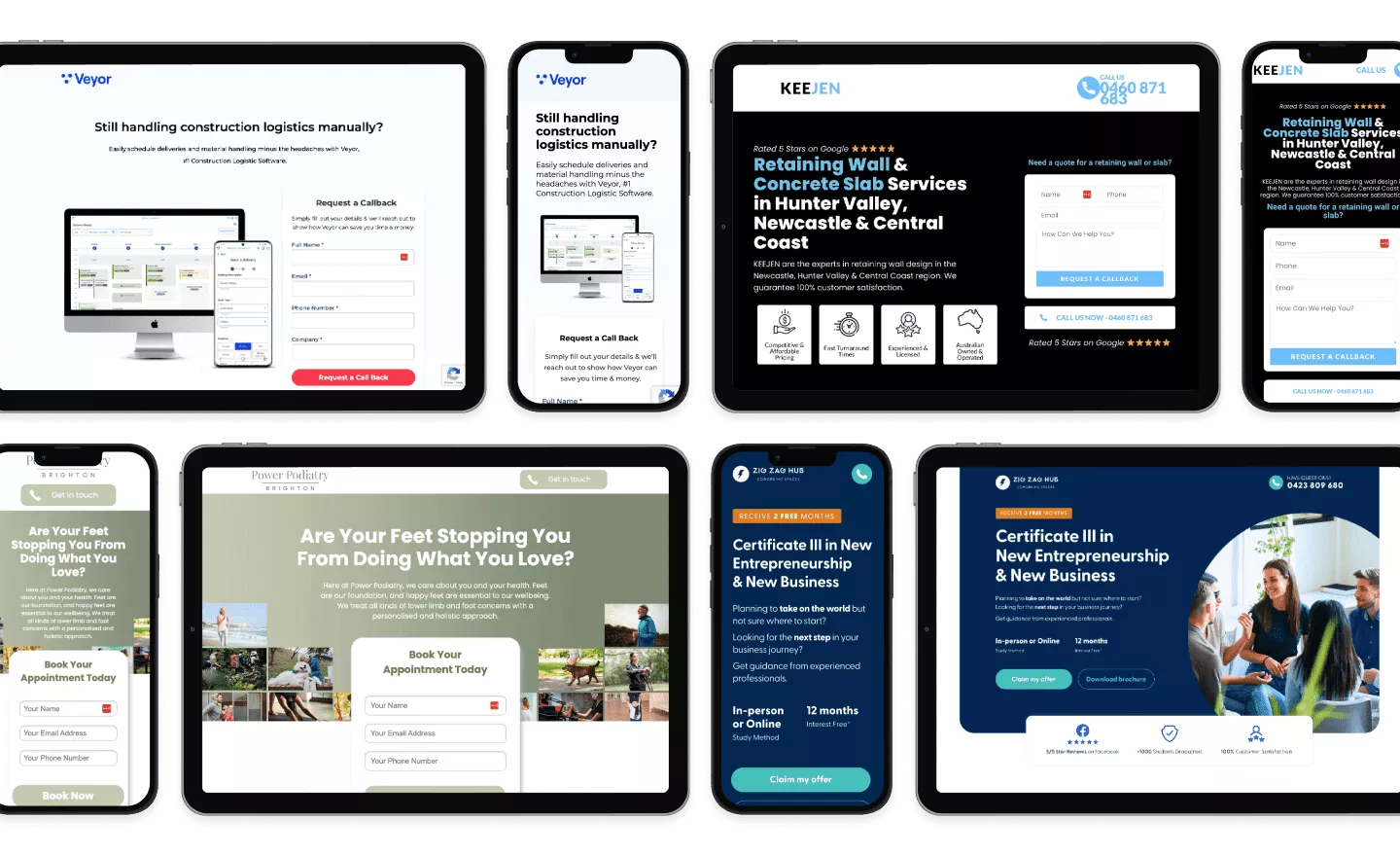
7. Track Results And Continuously Optimise
A successful search engine marketing campaign doesn’t stop after launch—it requires ongoing tracking and optimisation to maximise results.
Key Metrics to Track in SEM
- Click-Through Rate (CTR): How often users click your ad after seeing it. A higher CTR indicates an engaging ad.
- Conversion Rate: How many users completed the desired action after clicking your ad.
- Cost-Per-Click (CPC): How much you pay for each ad click. Lower CPCs mean better efficiency.
- Return on Ad Spend (ROAS): How much revenue your ads generate compared to the amount spent.
How to Optimise Your Search Engine Marketing Campaigns
- A/B Testing: Try different ad copy, landing pages, and bidding strategies to see what works best.
- Adjust Bids: Increase bids on high-performing keywords, lower or pause bids on underperforming ones.
- Refine Keywords: Regularly update your keyword list and add negative keywords to filter out irrelevant searches.
Final Thoughts on Search Engine Marketing
SEM is a powerful tool for businesses looking to increase visibility and drive sales. However, success in SEM goes beyond simply running ads—it requires strategic keyword selection, competitive bidding, audience targeting, ad quality improvement, and ongoing optimisation.
By understanding how SEM works and applying best practices, you can create high-performing ad campaigns that get real results. Whether you’re just starting out or looking to improve existing campaigns, SEM can be a game-changer for growing your business online.
How First Page Can Help With Your Search Engine Marketing
At First Page, we create high-impact SEM campaigns that put your business in front of the right customers—fast. More clicks, more leads, more sales. Ready to dominate search results? Let’s get started with a FREE STRATEGY today!

How easy is it to do SEM marketing by yourself?
SEM marketing is also a full-time job. Do ask yourself… Do I have the time? If not, it is best to leave it to professionals or a digital marketing agency. Contact us!
FAQ
How long will an Search Engine Marketing campaign take to bring in sales?
An SEM campaign can start generating sales almost immediately after launch, as your ads become visible to potential customers right away. However, the actual time to see significant results depends on factors like your industry, ad quality, budget, and competition
How much does SEM cost?
The cost of SEM varies based on factors like keyword competitiveness, industry, and your budget. Since SEM operates on a pay-per-click model, you only pay when someone clicks your ad. It’s important to set clear goals and monitor your campaigns to ensure you’re getting a good return on investment.
Is SEM more effective than SEO?
SEM and SEO serve different purposes and their effectiveness depends on your goals. SEM provides immediate visibility through paid ads, making it useful for quick results. In contrast, SEO focuses on improving organic search rankings, which can lead to more sustainable, long-term traffic.
When should I use SEO and SEM together as a marketing strategy?
Combining SEO and SEM in your marketing strategy is beneficial when you want to maximise your online visibility and reach a broader audience. SEO focuses on improving your website’s organic search rankings, which is essential for long-term growth and building credibility. SEM, on the other hand, utilises paid advertising to achieve immediate visibility and attract targeted traffic. By integrating both strategies, you can effectively capture users at different stages of their buying journey, ensuring a comprehensive approach to your digital marketing efforts.

Ready to reach page 1 on Google?
We know you want to make real money! Get ready to convert customers like crazy. Please do not delay. Contact us today!

